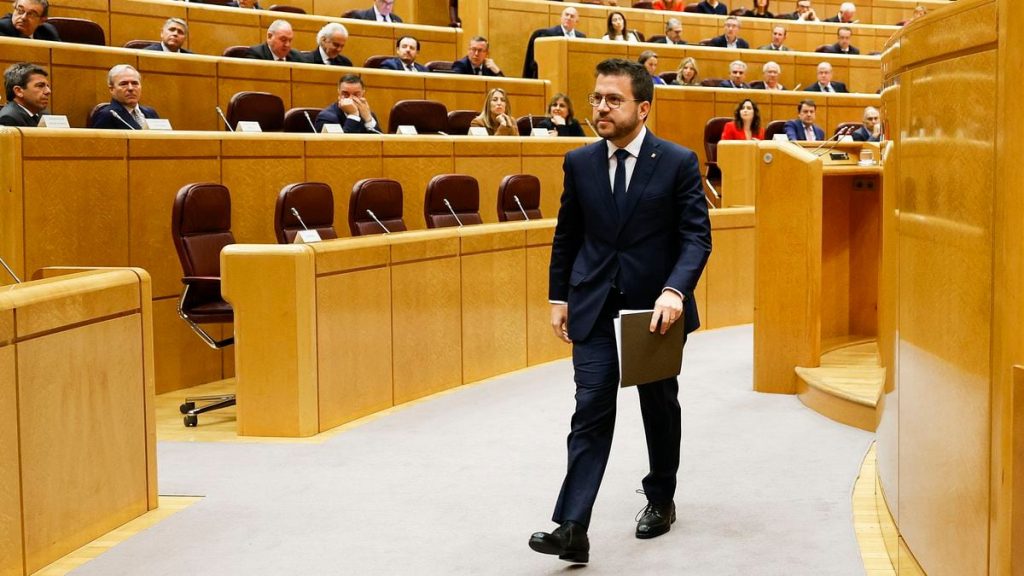The president of the Catalan Generalitat, Pere Aragonès (ERC), stated that the amnesty law is a complete reversal of the sentence of the 2019 procés case handed down by the Supreme Court and the “police and judicial repression against the independence movement.” He outlined ERC’s objectives after achieving the amnesty, including a referendum on self-determination and, as a priority, unique funding for Catalonia. Aragonès made these remarks during the General Commission of the Autonomous Communities of the Senate, where the impact of the amnesty law on different regions is being discussed.
Aragonès emphasized that the amnesty is a “victory” for the secessionist movement and a way to redress the harm caused by the repression and establish that “nothing that was done [in the procés] was a crime.” However, he made it clear that amnesty is not the final goal of the independence movement. According to Aragonès, unique funding for Catalonia and an independence referendum are inevitable, and he issued a warning that they will be pursued. Aragonès returned to the Senate just six months after his first appearance, specifically defending the amnesty in the same commission. He also highlighted the importance of a referendum and unique funding for Catalonia during his speech.
Aragonès described the amnesty as a rejection of an unjust sentence, recognizing that enabling citizens to vote should never be considered a crime. He stated that the amnesty, agreed upon by the PSOE with ERC and Junts in exchange for Pedro Sánchez’s investiture, ends the “illegitimacy of exile” and the police violence that followed the October 1, 2017 vote. He projected the amnesty as a precedent for the referendum and unique funding, as he believes that all three depend on the political will of the parties involved.
Reflecting on the initial reluctance of President Pedro Sánchez and his ministers, including catalans Miquel Iceta and Salvador Illa, to support the amnesty, Aragonès predicted that the same dynamic will play out with regards to the other demands of the independence movement. He emphasized that eventually, the referendum will be accepted as a way to resolve the sovereignty conflict between the Spanish state and the people of Catalonia. Aragonès was the first to speak in the high chamber commission following the defense of the report by the PP lawmaker Antonio Silván, with PSOE, ERC, and Junts casting opposing votes.
In contrast to his previous appearance six months ago, Aragonès focused on justifying his push for unique funding, which is a key point of the agreement between ERC and the socialists for Sánchez’s investiture and will be a focal point in the electoral campaign. He advocated for Catalonia to collect all taxes, pay a portion to the state for services received, and allocate another portion to an inter-territorial solidarity fund. Aragonès emphasized the importance of fair distribution, highlighting that no one would accept being the third in contributions but the fourteenth in receipt of benefits, illustrating the imbalance that currently exists in funding allocations.















